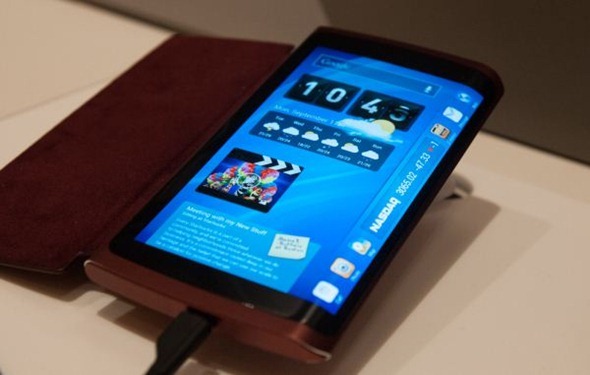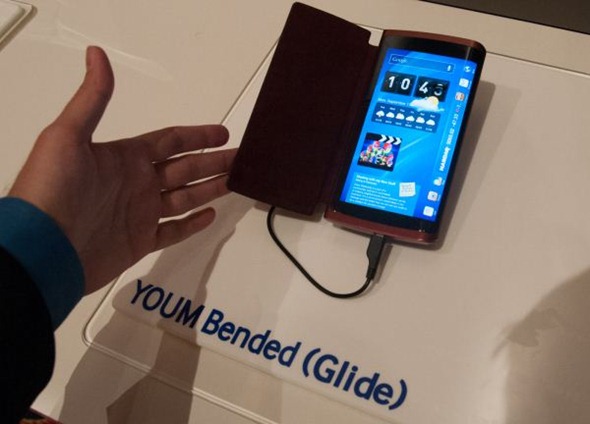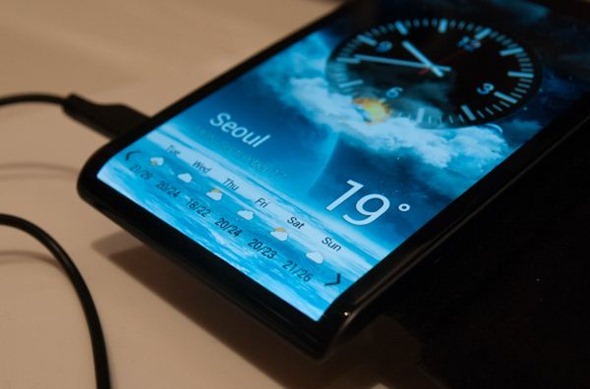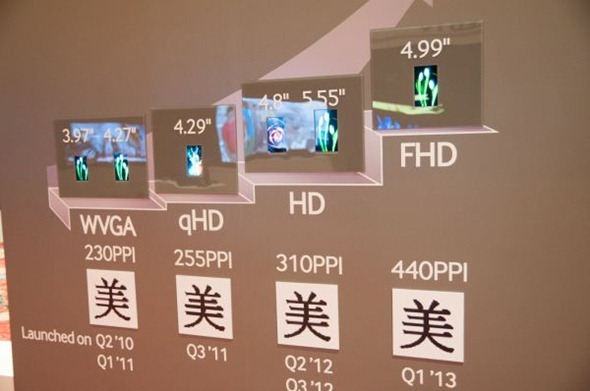Over the last few years, many device makers have been flirting with the idea of rolling out flexible displays on its handheld devices, but no other company has been most outspoken about it than Samsung. At the Consumer Electronic Show, the company showed off its new generation of bendable displays, which have a huge potential for changing the traditional form factor of smartphones.
The new flexible display was introduced under the YOUM brand of AMOLED displays introduced last year. The new displays are purported to be extremely flexible, while at the same time durable and extra-crisp. It is the glass that prevents most displays from folding: by getting rid of it, and replacing it with TFT layers and what Samsung calls “film-based encapsulation”, it is possible to make screens that aren’t only extremely bendable, but are also incredibly resistant.

Those expecting a phone that they can bend or fold might be disappointed: at least from the latest demo, the folded display is tied to a canvas. However, the potential of a screen that’s not plain allows, for example, for a separate notifications area which is completely independent from the main display. It could also be used as a multi-tasking panel which would make it much easier to switch between apps, something that hasn’t fully been figured out on mobile devices as of yet.

Samsung is also promising to greatly increase the resolution of future displays, while greatly improving their energy efficiency. Scheduled to reach production in the 1st quarter of this year is a 4.99-inch “full HD” screen, running at 1080p at 440ppi, while consuming 25% less power than its 720p predecessor, in part thanks to the use of better materials. These changes are likely to make their way straight into the next-generation Galaxy S Android smartphone, which is widely known as the Samsung Galaxy S IV.

There is no clear indication as to whether Samsung will include the new foldable displays with the next-generation Galaxy S: while plans were in place to begin production last year, recent reports are alleging that this may have been postponed, forcing Samsung to focus on plain old, standard AMOLED displays with glass as its primary component. However, the improvements in battery usage are likely to be incorporated into standard displays for the time being.

Stay tuned for more news on the Galaxy S IV as the announcement date draws near.
(via AnandTech)
You can follow us on Twitter, add us to your circle on Google+ or like our Facebook page to keep yourself updated on all the latest from Microsoft, Google, Apple and the web.

